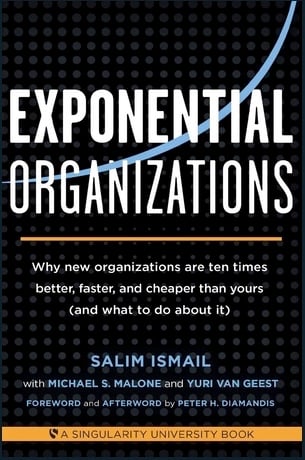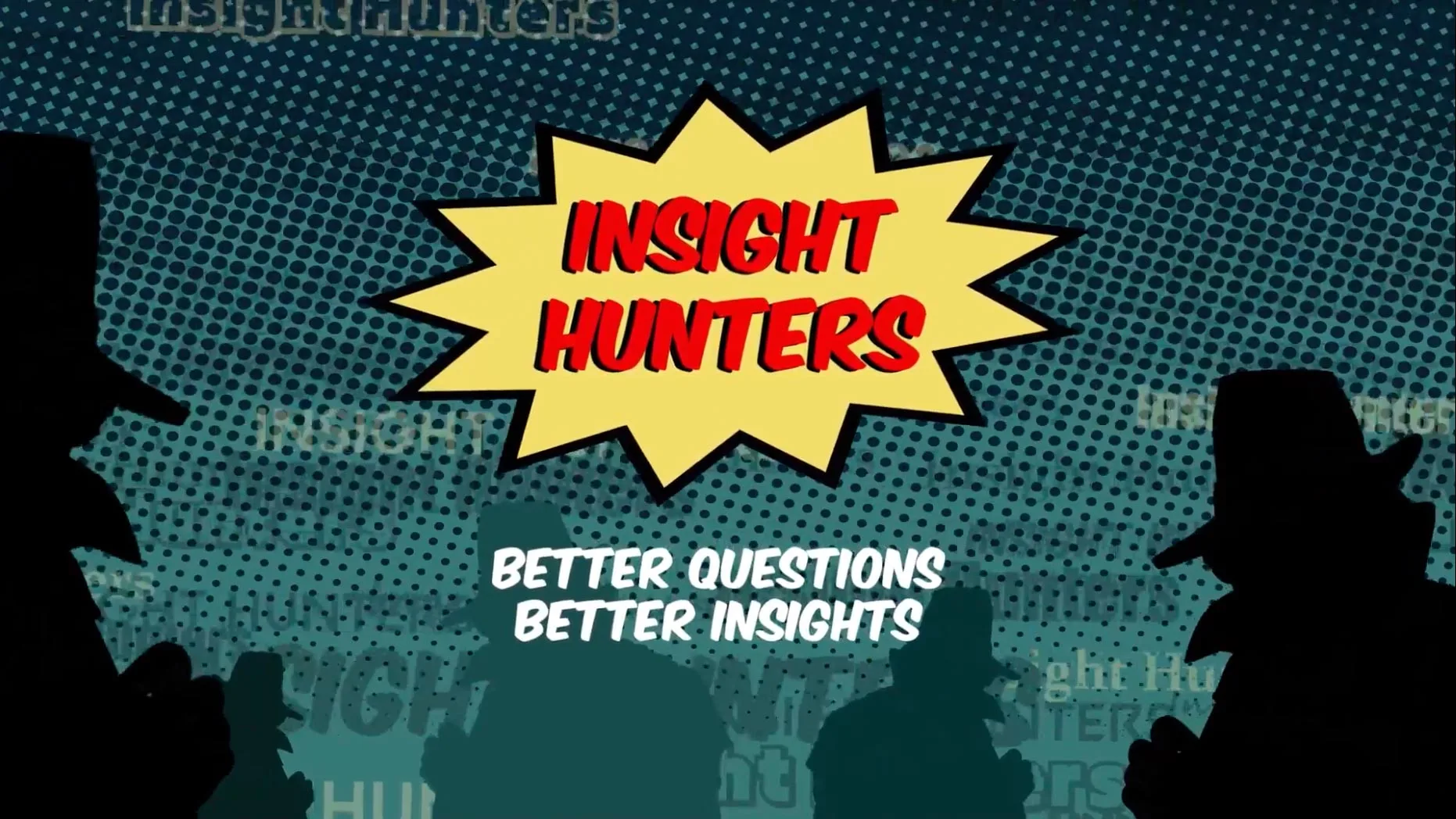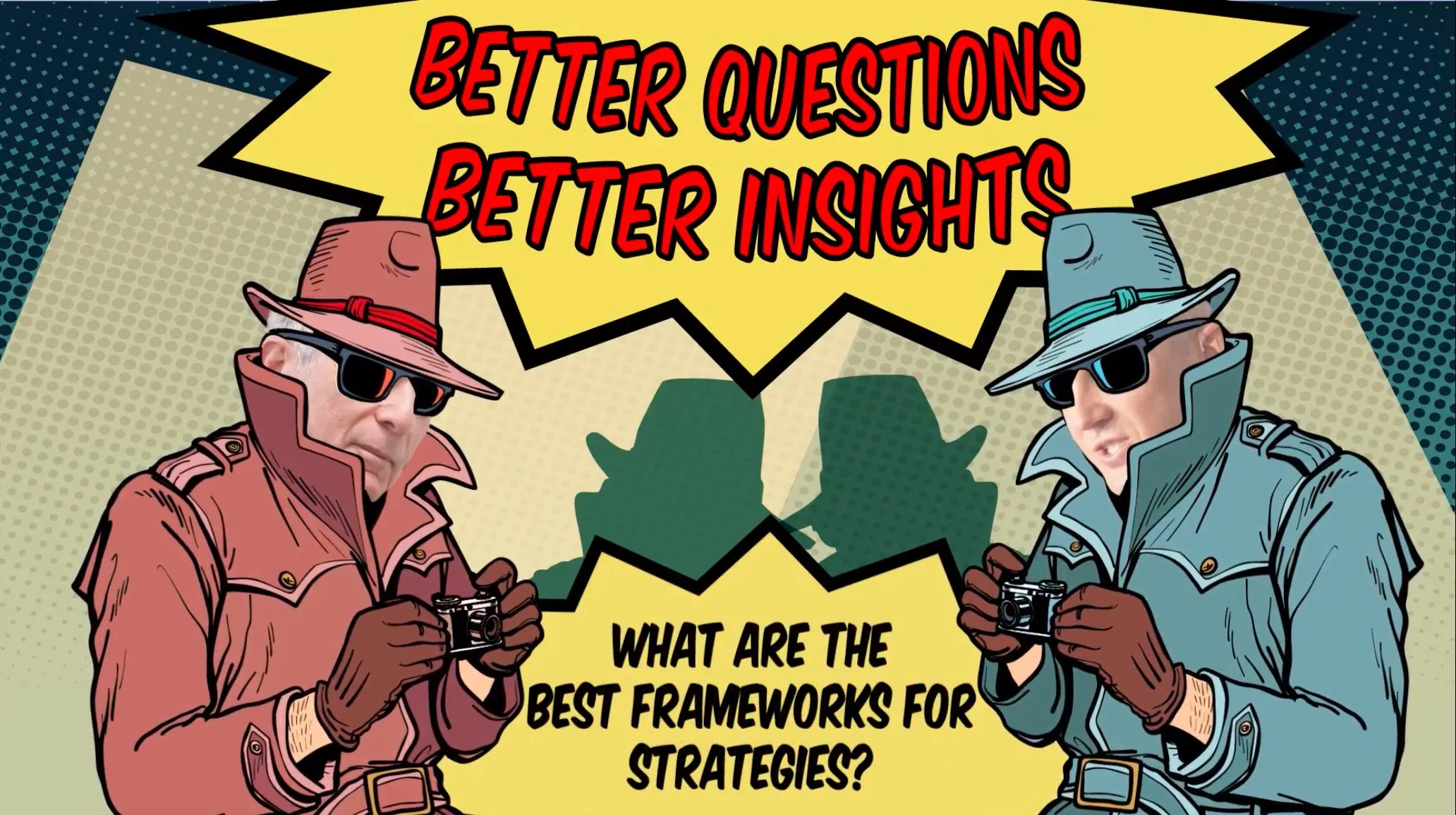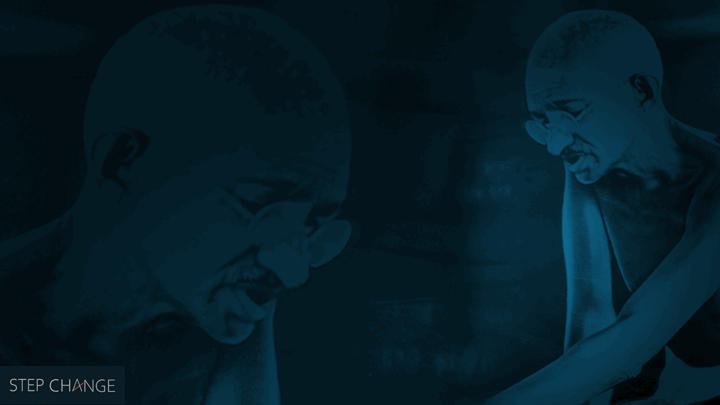In this blog article, learn how you can lead more collaborative, consensus-based decision making with your team.
Decoded: The Science Behind Why We Buy
Business Strategy, Marketing Strategy, Decision Making, Power of Decision, Business Growth, Knowledge Nuggets, Alignment, Strategy Frameworks, Agile, Strategic Planning, Smart Decision System, Exclusive Interview3 Ways To Prepare Your Business For Disruption
Business Strategy, Artificial Intelligence, Innovation, Disruption, Augmented Reality, Business Growth, Marketing Automation, Customer Centricity, Business Opportunities, Digital Revolution, Digital EconomyHow do you prepare for the unpredictable?
Disruption no longer waits its turn. it arrives early, moves quickly, and rewrites the rules while businesses are still playing catch-up.
Some organisations are making sense of change and using it to their advantage. Others are stuck reacting, hoping things will return to normal.
The difference comes down to strategy. The businesses that pull ahead are the ones that read the signals, adapt fast, and move with intent.
Are You Marketing Backwards?
Customer Journey, Business Strategy, Standing Out, Innovation, Disruption, Customer Centricity, Lean PrinciplesMost marketing teams are working hard, but in the wrong order. They start with “we need a post”, “we need a video”, or “we need a campaign”, then retrofit the message and retrofit the audience. The result is noise, not movement.
6 Ways to Identify Unmet Customer Needs
Customer Journey, Business Strategy, Standing Out, Innovation, Disruption, Customer Centricity, Lean PrinciplesMeeting a customer need is the baseline. It keeps you in the game — but it won’t guarantee you win it.
You can deliver exactly what you promised and still see customers drift away. Not because you’re doing anything wrong, but because there are other, quieter needs shaping their decisions and they’re going unmet.
And here’s the kicker: more than 90% of unhappy customers never complain. They don’t tell you what’s missing. They just leave, often for a competitor who spotted the gap first.
That’s the silent churn — the invisible drain on revenue and loyalty. If you want to stay ahead, you need to look past the obvious needs you’re already meeting and spot the opportunities your competitors haven’t.
Here’s how to find them.
Insight: Many established businesses miss growth opportunities hiding in plain sight — unmet customer needs in their niche that competitors are failing to address.
Data: Poor customer experiences cost businesses up to $3.8 trillion globally. (Decisions Studio)
What’s the step change: Learn where competitors are dropping the ball, and create add-ons, services, or experiences that customers didn’t even realise they were missing… until you delivered them.
Watch: Let Step Change CEO Ashton Bishop show you how to spot and act on unmet customer needs.
Invest with Confidence: 6 Questions to Unlock Business Opportunities
Business Strategy, Innovation, Business Growth, Challenger Brands, Customer Centricity, Brand Positioning, Business OpportunitiesEver been let down by a business idea you thought had so much potential?
The only thing worse than a poorly developed business idea is investing in a poorly developed business idea. With pressure from all fronts, easy to get excited. You see a gap, get an idea, and boom — you’re off. But without clarity, you’re flying blind.
And that's how thousands of startups and new ideas go belly up year on year. Clayton Christensen of Harvard Business School called it: 95% of product launches fail — not because the ideas were bad, but because no one stopped to ask: What makes this a great opportunity?
Don't make the same mistake.
Nobody wants to spend time, energy and resources on a product or service that doesn’t fly. So how do you ensure your new business idea is poised to win when it enters the market?
Growth Cheat Sheet: 5 Marketing Moves That Won’t Eat Your Budget
Customer Journey, Business Strategy, Marketing Strategy, Brand Building, High Performing Teams, Conversion, Marketing Funnel, Strategic Planning, Brand Saliency, Business Opportunities, Digital Marketing, The 4 Ps, Marketing, Marketing BudgetWhere do marketing budgets go to die? In spreadsheets? Maybe. Boardrooms? Bingo.
Not because the idea’s bad. But because the story behind the spend doesn’t stack up.
So how do you build a case that wins hearts, minds, and money without setting fire to your budget?
At the Outsmart vs Outspend Masterclass, marketing and growth heavyweights Ashton Bishop, Marc Johnstone, Matthew Bywater, and Sam Musgrave dropped five moves that separate the growth-savvy from the budget-burners.
Steal them. Use them. Scale smarter.
Marketing Budget: How Much Should You Spend on Marketing?
Predatory Marketing, Business Strategy, Branding, Marketing Strategy, Decision Making, Business Growth, Challenger Brands, Alignment, Brand Building, Strategy Frameworks, Brand Positioning, Measures That Matter, Strategic Planning, Brand SaliencyThe Death of the SWOT Analysis and the Rise of the Strategic Radar
Business Strategy, Popular PostsFor decades, the SWOT analysis was the go-to framework for strategic planning. Simple. Familiar. Accessible. But in a world moving at the speed of disruption, is SWOT still fit for purpose?
Short answer — not really.
Now for the million-dollar question. Is it time to retire the old checklist and embrace a smarter, more adaptive way to think strategically? Can we as leaders even imagine an era without SWOT? And how do we even get started without losing sight of the results that matter most?
Welcome to the era of the Strategic Radar — built for complexity, time sensitivity, and decision-making that actually drives change.
Pre-Suasion: 5 Tactics To Grab Attention in an Overloaded World
Customer Journey, Business Strategy, Standing Out, Artificial Intelligence, Innovation, Invisible Marketing, Content Marketing, Challenger Brands, Thinking Models, Digital Revolution, Digital Marketing, Robert Cialdini, Influence, Persuasion, PresuasionHow many emails do you get in a day? Did you get a notification just now? And is that a pop-up on the corner of your screen?
With so much competing for our attention, it’s no wonder our brains lean on quick mental shortcuts just to make it through the day. Otherwise, it’s impossible to sift through the flood, simplify decisions, and manage cognitive overload.
For businesses, this chaotic landscape is both a puzzle and a goldmine. How do you cut through the noise and truly connect with people?
In this exclusive interview with influence pioneer, author, and psychologist Dr Robert Cialdini, we unpack “Pre-Suasion” and how it reshapes the way businesses captivate, engage, and earn trust.
Watch the full interview and get candid with “Pre-Suasion” and “Influence” author Dr Robert Cialdini here.
Knowledge Nugget: 11 Team Productivity Issues You Can Solve With Scrum
Business Strategy, Artificial Intelligence, Marketing Strategy, Decision Making, Business Growth, Knowledge Nuggets, Scrum, Team Efficiency, Alignment, Lean Principles, Strategy Frameworks, High Performing Teams, Agile, Strategic Planning, Smart Decision System, Exclusive InterviewIn this blog article, learn how you can lead more collaborative, consensus-based decision making with your team.
Knowledge Nuggets: Exponential Organizations
Business Strategy, Ashton Bishop, Knowledge NuggetsExponential Organisations
In this Special Interview, Step Change CEO Ashton Bishop picks the brain of Futurist and best-selling author of Exponential Organizations and Exponential Transformation – required reading at the world's top organizations – Salim Ismail.
Hear them discuss:
- The characteristics of successful new business models
- How organisations are changing in order to adapt
- The economic shift from selling scarcity to businesses based on abundance
- How can organisations make money in a demonetised, digitalised world
- Innovation at the edge - the way to disrupt the industry
Watch the entire interview below:
Neither size nor depth, nor scale can guarantee the continuity of businesses for tomorrow. We therefore ask the question, what can organisations do to be more future-ready? In this week’s Knowledge Nuggets, a special guest will help you better understand the premise in the book Exponential Organizations by Salim Ismail.
KNOWLEDGE NUGGETS: EXPONENTIAL ORGANIZATIONS 2.0
Success Principles, Business Strategy, Artificial Intelligence, Business Growth, Knowledge Nuggets, Agile, Business Model, Exponential Organizations, Salim Ismail, Exclusive InterviewIn Salim Ismail's captivating exploration, "Exponential Organizations," the celebrated futurist and strategist opened the doors to bold foresight.
The Business Models behind the Best Billion-Dollar Unicorns
Business Strategy, Artificial Intelligence, Innovation, Marketing Technology, Brand Building, Differentiation, Conversion, Business Opportunities, Business Model, UnicornsTOP DIGITAL POWERPLAYS: 14 DIGITAL SECTORS TO EXPLORE AND DOMINATE
Business Strategy, Artificial Intelligence, Augmented Reality, Digital, Business Growth, Content Marketing, Brand Positioning, Business Opportunities, YouTube, Digital Revolution, Digital Economy, Digital MarketingHow Do You Overcome a Bad Decision?
Business Strategy, Decision Making, Productivity, Culture & Leadership, Scenario Planning, Institute of Change, High Performing Teams, Business Opportunities, Smart Decision System, Smart RiskWhen you've made a bad decision, how do you overcome? Here are four simple ways to recover from a bad decision.
10 Key Business Areas Powered with AI: A Guide for Board Members
Technology, Business Strategy, Artificial Intelligence, Innovation, Decision Making, Digital, Business Growth, Marketing Technology, Marketing Automation, Software, Challenger BrandsWhat’s all this noise surrounding artificial intelligence? Is AI worth the hype? And how do you even get started? Do these questions sound familiar?
With marketing technology (martech) and AI becoming a critical part of mainstream business strategy, getting the buy-in from the top brass is essential. But lack of understanding, fear of the unknown, ethics, biases, and costs can get in the way.
So how do you demystify martech and AI and get the ball rolling?
What ChatGPT Doesn’t Know About Brand Salience
Business Strategy, Sales, Ashton Bishop, Artificial Intelligence, Branding, Marketing Strategy, Creativity, Challenger Brands, Brand Building, Differentiation, Distinctive Brand, Brand Positioning, Brand SaliencyUPDATED: As of 23 February 2023
Are you even really running a business if you don’t know what it’s like to fight for recognition in today’s market? Getting attention is one thing. Being unforgettable is another.
Pay attention to the first brand in your head in a particular situation. Chances are, it’s one with higher brand salience than the rest of its competitors. The good news is you can have that for your brand, too.
A quick ChatGPT conversation will say brand salience is about awareness, consistency, repetition, relevance, differentiation, emotional connection, and user experience. If you’re a challenger business, AI will mainly tell you that you just have to strive for awareness and consistency. But what does that even mean? And how can you begin to incorporate those elements into your long-term and short-term goals?
It’s no lie — AI does have a pretty good grasp on ‘what’ you need to be more brand salient. But if you’re looking to get your hands dirty with the ‘hows’ and more importantly, get results, you’ve come to the right place.
3 Ways to Transform Board Meetings with Measures That Matter
Business Strategy, Ashton Bishop, Marketing Strategy, Decision Making, Business Growth, Board, Strategy Frameworks, Measures That Matter, Tracking, Strategic Planning, ReportingUPDATED: As of 25th January 2023
Ever been to a board meeting that left you feeling unproductive and confused?
In an increasingly data-led world and with the rise of artificial intelligence, businesses are able to track more than ever before. But it’s easy to get caught up in tracking and forget to drive results altogether.
As a board member, it’s critical that you’re able to look beyond the documentation and into the priceless insight that lies between the lines. Question is, how?
Funnel Metrics: 5 Steps to Link Your Marketing and Sales
Customer Journey, Business Strategy, Marketing Strategy, Business Growth, Alignment, Conversion, Sales Strategy, Marketing FunnelIt’s easy to think that marketing and sales are completely different functions of a business. But both share a common denominator of engaging customers and integrating the value you offer into their lives.
That said, every business needs customers. Not just any customer, though — but ones you can serve and who can get behind your product or service offering. When done right, sales-informed marketing can be a catalyst in delivering more qualified customers and optimising a customer journey that makes them stay and buy more. But with the nuances of sales and marketing, how do you know which aspects are relevant to the other? This is where the Funnel Metrics tool comes in.
Insight: When marketing and sales come together, they deliver the right customers suitable for businesses to thrive.
Data: Organisations with a service level agreement (SLA) between marketing and sales are three times as likely to be effective. (Hubspot)
Key Action Point: Utilise the Funnel Metrics to master the key pieces of information needed to align marketing with sales efforts and deliver more qualified customers.
WATCH: Let Step Change CEO Ashton Bishop walk you through the Funnel Metrics tool.
Insight Hunters: 6 Critical Questions Every CEO Must Answer
Business Strategy, Ashton Bishop, Marketing Strategy, Disruption, Culture & Leadership, Better Questions, Norman Chorn, Better Insights, Thinking Routines, High Performing Teams, AgileMassive change and disruption have transformed the way we work and live. The old ways are no longer working and innovative and more creative solutions are called for by the day.
Insight Hunters EP3: What Are the Best Strategy Frameworks?
Business Strategy, Ashton Bishop, Marketing Strategy, Better Questions, Norman Chorn, Better Insights, Strategy FrameworksWelcome to another episode of the Insight Hunters with Dr Norman and Detective Flash! Ready to ask better questions to get better insights?
Knowledge Nuggets: Life in Half a Second
Success Principles, Business Strategy, Personal Growth, Ashton Bishop, Knowledge NuggetsWhen it comes to success, there's already so much content based on opinion. But what if there was a proven path to success based on science and research? Join us as we dive deep into Complexica CEO Matthew Michalewicz’s fact-based formula for success in his book, Life in Half a Second.
The 3 Absolute Essentials of Good Strategy
Business Strategy, Marketing Strategy, Knowledge Nuggets3 Essentials of Strategy
Strategy is often hard to define, which makes it all the more difficult to distinguish what actually constitutes a good strategy.
Why Do Strategic Plans Fail? 5 Mistakes And How To Counter Them
Business Strategy, Marketing Strategy6 Key Principles for Creating Lightning Strike Moments: Exponential Marketing
Business Strategy, Ashton Bishop, Marketing Strategy, Decision Making, Creativity, exponential marketingLearn about the scenario planning mistakes and how you can prevent them from misfiring your strategy so you can navigate complexity efficiently.
History’s Greatest Strategists: Henry Ford
Business Strategy, History's Greatest Strategists, Leadership, Culture, Henry FordThe more specific we can be about our category, the better chance we have to be remembered and related to by our customers. Are you in the right category?
5 of Your Favourite Step Change Articles from 2020
Business Strategy, Ashton Bishop, Step Change, Branding, Marketing Strategy, Bendy Phones, Powerful Presence, Culture & Leadership, Fintech, Marketing AutomationNavigating Complexity: 5 Scenario Planning Mistakes & How To Stop Them
Business Strategy, Ashton Bishop, Marketing Strategy, Decision Making, Creativity, Culture & Leadership, Scenario Planning, AlignmentLearn about the scenario planning mistakes and how you can prevent them from misfiring your strategy so you can navigate complexity efficiently.
History’s Greatest Strategists: Mahatma Gandhi
Business Strategy, History's Greatest Strategists, Leadership, Mahatma Gandhi, CultureThe more specific we can be about our category, the better chance we have to be remembered and related to by our customers. Are you in the right category?
History’s Greatest Strategists: Dame Anita Roddick
Business Strategy, History's Greatest Strategists, Business Growth, Dame Anita Roddick, The Body ShopThe more specific we can be about our category, the better chance we have to be remembered and related to by our customers. Are you in the right category?


































